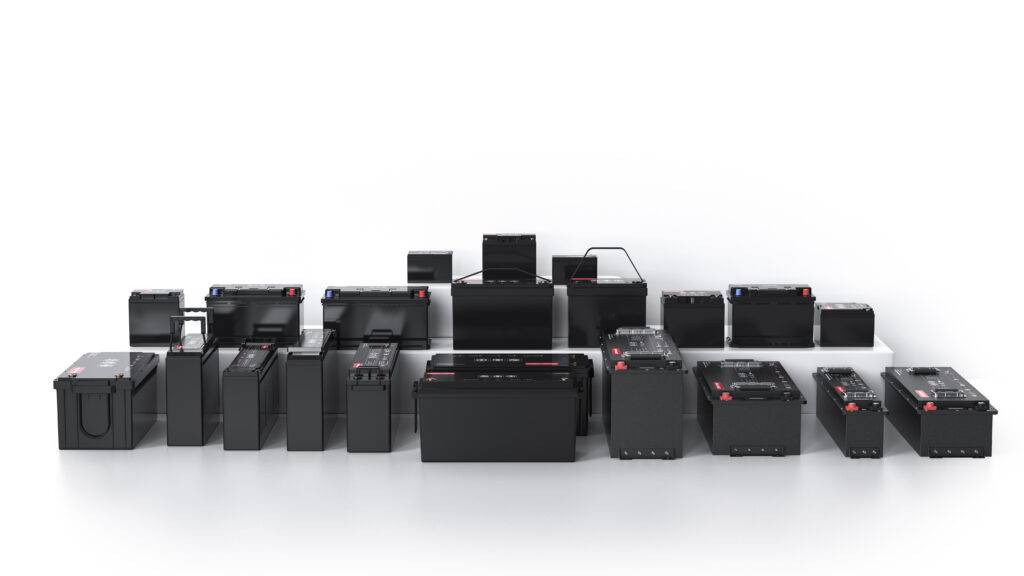The battery world has been witnessing revolutionary advancements, with a plethora of options now available to users. Among these, the Lithium Iron Phosphate (LiFePO4) battery stands out, carving a niche for itself in both domestic and industrial applications. This article dives deep into the world of LiFePO4, exploring its merits and shedding light on why it might be the ideal choice for your power needs.

#post_seo_title
1. Introduction to LiFePO4
Lithium Iron Phosphate (LiFePO4) is a type of lithium-ion battery. The designation ‘LiFePO4’ arises from its distinctive chemistry, where the cathode comprises lithium iron phosphate. Introduced in the 1990s, this battery variant has grown in popularity due to its unique set of properties.
2. Advantages of LiFePO4 Batteries
A. Superior Thermal Stability & Safety: One of the most crucial advantages of LiFePO4 batteries is their thermal stability. They are less prone to overheating, reducing the risk of thermal runaway, a primary safety concern with some other lithium-ion batteries.
B. Long Lifespan: LiFePO4 batteries boast a significantly longer lifespan compared to their counterparts. With proper care, they can sustain thousands of charge and discharge cycles without significant capacity loss.
C. Eco-friendliness: Unlike other batteries that use heavy metals, LiFePO4 batteries are more environmentally benign given their non-toxic composition.
D. High Discharge Rate: Suited for applications requiring a steady power output, these batteries can handle high discharge rates without significant performance drops.
E. Stable Voltage: Throughout most of their discharge cycle, LiFePO4 batteries provide a consistent voltage level, ensuring your devices operate efficiently.
3. LiFePO4 in Comparison
When compared to traditional lead-acid batteries or other lithium-ion variants:
- Weight: LiFePO4 batteries are lighter, offering more energy density.
- Maintenance: They require minimal maintenance, unlike lead-acid batteries that might need periodic topping up.
- Depth of Discharge: LiFePO4 batteries can be deeply discharged without significant damage, allowing users to utilize more of the battery’s capacity.
4. Ideal Applications of LiFePO4 Batteries
Given their unique attributes, LiFePO4 batteries are perfect for:
- Renewable Energy Systems: Solar or wind energy storage systems can benefit from their long lifespan and consistent performance.
- Electric Vehicles (EVs): The safety and high discharge rate of LiFePO4 batteries make them ideal for EVs, including e-bikes and e-scooters.
- Backup Power Supplies: Their long shelf life and consistent voltage delivery suit them for UPS and emergency power supplies.
- Portable Electronics: Devices like cameras or drones that need consistent power benefit from LiFePO4’s stable voltage.
5. Tips for Maximizing LiFePO4 Battery Life
- Avoid Extreme Temperatures: While they have good thermal stability, prolonged exposure to very high or low temperatures can affect their lifespan.
- Regular Monitoring: Use a battery management system (BMS) to monitor its health and ensure balanced charging and discharging.
- Optimal Storage: If storing for prolonged periods, keep the battery at a 50-60% charge level in a cool, dry place.
6. Conclusion
In the dynamic landscape of battery technology, LiFePO4 emerges as a frontrunner for those seeking a blend of safety, performance, and longevity. Whether you’re an enthusiast setting up a home solar power system, an EV manufacturer, or simply someone looking for reliable power backup, LiFePO4 batteries promise to deliver. As with all technologies, ensuring proper usage and care will let you harness the full potential of this exceptional battery variant.


